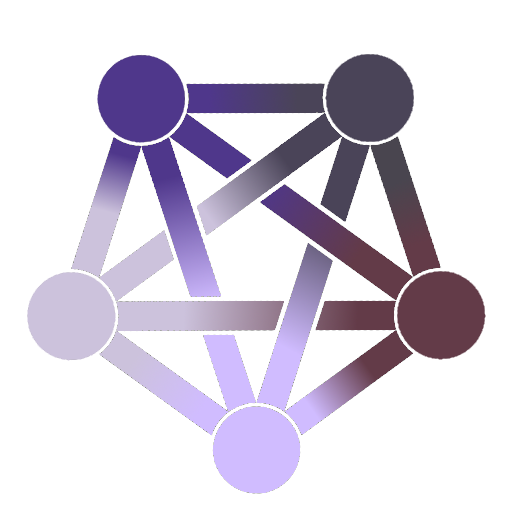Anyhow, that’s why I’m freebasing creatine now.
And if you get poisoned with 2,4-DNP, your ATP will make you into a thermal power plant before you die of uncontrolled hyperthermia!
I worked in bioelectrochemostry. We had looked into that to see if we could juice reactors. Turns out it’s not the bugs that limit things, but godamn did that stuff make them boogie.
Cave Johnson is that you?
That’s not me. Thaaaats asbestos.
There is also a Mycotoxin ATP Inhibitor called Tri-Nitro-Propionic Acid, which causes complete organ failure after a couple of days of being unconsious (because the body keeps attempting to create ineffective ATP and then starves). It generally only gets produced by certain fungal strains such as tropical Arthrinium, but can also be a very small percentage biproduct in some biofuel production methoda which utilize propionibacteria to conver grains and grasses similarly to how yeast creates alcohol.
THATS HOW ATP WORKS??? WHY DIDNT WE TALK ABOUT THAT IN BIO THIS IS SICK
That is friggin’ cool!
It’s making ADP into ATP iirc, right?
You’ve got it! It’s adding a third phosphate group to adenosine to store energy. Interestingly, it’s the same adenosine as the ‘A’ base in DNA & RNA.
You’re thinking of adenine when it comes to DNA/RNAActually, adenosine is adenine with a ribose attached by a glycosidic bond, which is the D/R in DNA/RNA.
I fucking hate this picture every time of the day
I think it’s a pretty good meme format though
It’s the holding the side of her neck and not say, her shoulder, that always makes my brain go eurgh for a second when seeing it.
Bacterial flagella are also rotary motors! I did an optional module in biophysics as part of my physics degree and I would recommend it to anyone.
And they even can have clutches and reverse gear.
Ao why tha fuck we be eating then.
Is that saying it still needs food and is just what’s going on as the food is digested?
Your body burns the food you eat in much the same way that a fire burns some kind of fuel, be it wood, gas, oil, etc. The fire rapidly combines atmospheric oxygen with molecules in the fuel to make carbon dioxide and releases the energy in the chemical bonds of the fuel as heat and light. On the other hand, your body combines the food with oxygen that you breathe in a controlled manner (also producing CO2), harvesting the energy of those chemical bonds to power those turbines that produce ATP. ATP is just a molecule that holds a lot of energy in its chemical bonds. It’s the “energy currency” of life, providing the overwhelming majority of the energy required by other molecules as they do their jobs in your body (think of your muscles contracting). ATP is the convenient, universal way to move around energy in living systems. Can’t do none of this shit without breathing and eating.
MITOCHONDRIA ARE THE POWERHOUSE OF THE CELL!!!
My biology teacher had this thing where every test you had to submit a question. My question was always the same - how the fuck does atp synthase work?
She did not appreciate my question especially after the first time, but it was always genuine… How the fuck does that shit work? If you understand it, please attempt to put it into words
It has a part that is embedded in a mitochondrial membrane and works as a rotor. The other part is sticking out from the membrane and is responsible for synthesis of ATP from ADP and phosphate. An off-axis part of the rotor pushes the stator, it changes shape and pushes ADP and phosphate together, until they fuse to ATP.
To make the rotor move, it makes use of membrane potential. One side of the membrane has a lot more H⁺ (just protons, really) than the other. The excess H⁺ want to go to the other side. The membrane doesn’t let them through. It is hydrophobic on the inside, so it does’t let through anything charged (like H⁺) or polar (like water). This is the potential and it has quite a lot of energy. ATP synthase lets the H⁺ through by binding them to the rotor in the membrane in a particular place and releases them in another in such a way that forces the rotor to turn almost a full turn before they can leave and stops it from rotating the other way. As mentioned, the rotation is transfered to the stator, changing its shape and thus creating ATP. As a side note, multiple H⁺ are bound on the rotor along its circumference, so each rotation is powered by the potential energy of multiple protons.
Of course, it’s a bit more complicated than that, but I don’t think there’s anything downright wrong or misleading in what I wrote. I hope I managed to make it understandable. Also, I recommend animations of the synthase on youtube.
I realised I have a sort of explanatory image at hand.

Adenosine triphosphate (ATP) functions as the primary energy currency of the cell, enabling various biological processes. Here’s an explanation of how ATP works on a molecular level:
Structure of ATP
ATP is composed of three main components:
-
Adenine: A nitrogenous base.
-
Ribose: A five-carbon sugar molecule, which together with adenine forms adenosine.
-
Three Phosphate Groups: Linked sequentially through high-energy bonds.
Energy Storage and Release
The key to ATP’s function lies in the high-energy bonds between its phosphate groups, particularly the bond between the second (beta) and third (gamma) phosphate groups.
- Hydrolysis of ATP:
When ATP is hydrolyzed (reacts with water), it loses its terminal (gamma) phosphate group, releasing energy.
The reaction is:
ATP + H2O > ADP + Pi + Energy
- Energy Release:
The hydrolysis of ATP releases about 30.5 kJ/mol (7.3 kcal/mol) of energy.
This energy is used to perform cellular work, such as muscle contraction, active transport across cell membranes, and chemical synthesis.
Mechanism of ATP Utilization
- Phosphorylation:
ATP transfers its phosphate group to another molecule (a process called phosphorylation), making that molecule more reactive.
This is often facilitated by enzymes known as kinases.
- Energy Coupling:
Cells couple the exergonic reaction of ATP hydrolysis with endergonic reactions (reactions that require energy).
For example, during muscle contraction, ATP hydrolysis provides the energy for the motor protein myosin to move along actin filaments.
ATP Synthesis
ATP is regenerated from ADP through cellular respiration, which consists of three main stages:
-
Glycolysis: Breakdown of glucose into pyruvate, producing a small amount of ATP.
-
Citric Acid Cycle (Krebs Cycle): Further breakdown of metabolic products, generating electron carriers (NADH and FADH2).
-
Oxidative Phosphorylation:
Electrons from NADH and FADH2 are transferred through the electron transport chain in the inner mitochondrial membrane.
This creates a proton gradient that drives ATP synthesis via ATP synthase.
ATP Synthase Function
ATP synthase is a complex enzyme that synthesizes ATP from ADP and using the energy derived from the proton gradient.
-
Proton Gradient: Protons flow back into the mitochondrial matrix through ATP synthase.
-
Rotational Catalysis:
The flow of protons causes the rotation of a part of ATP synthase.
This mechanical energy drives the chemical synthesis of ATP from ADP and .
In summary, ATP serves as a molecular battery, storing energy in its high-energy phosphate bonds and releasing it upon hydrolysis to fuel various cellular activities. Its synthesis and utilization are tightly regulated processes essential for life.
ChatGPT missing the question
Thank you chat GPT. Here have my downvote.
-
Plot twist: she’s the biochemist.
ATP Synthase is my favourite molecule ^^
Literally no mention of mitochondrion? The powerhouse of the cell??
She looks like she’s on the worst first date ever.







